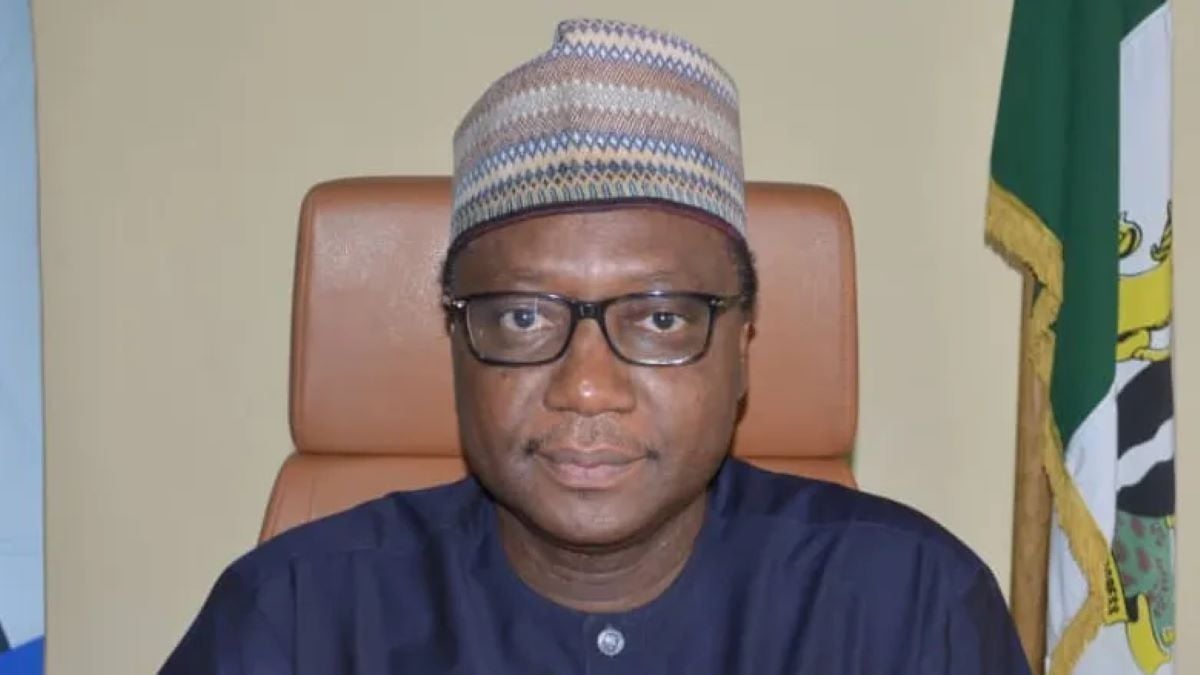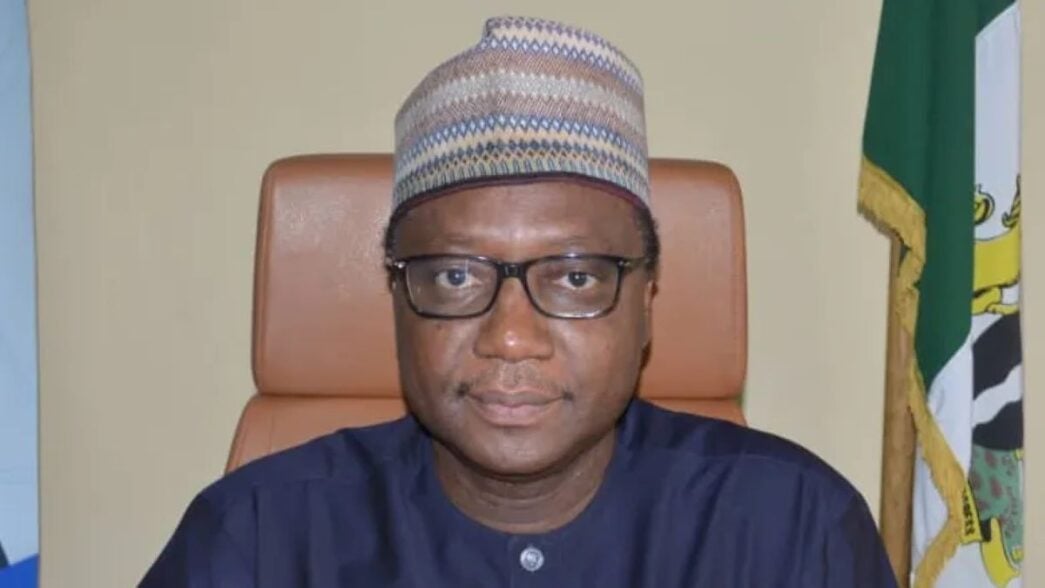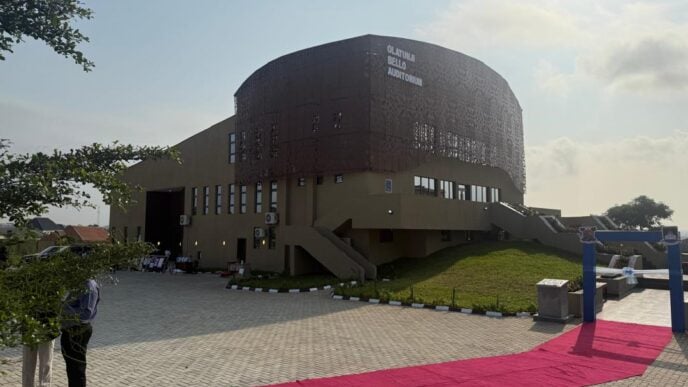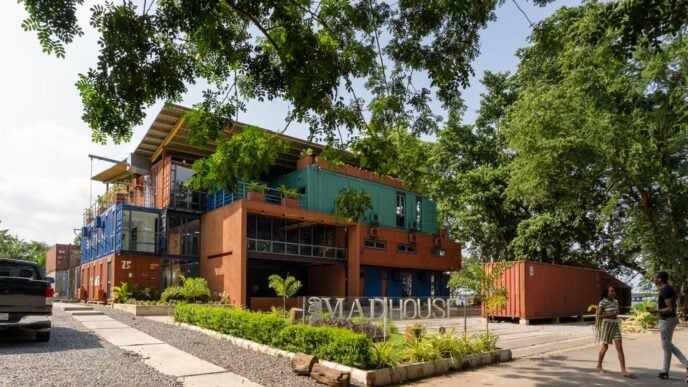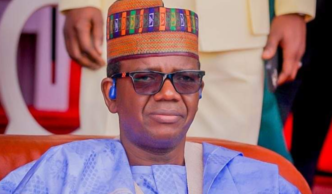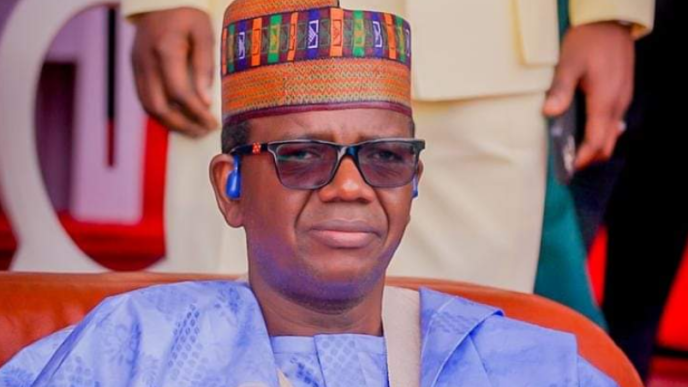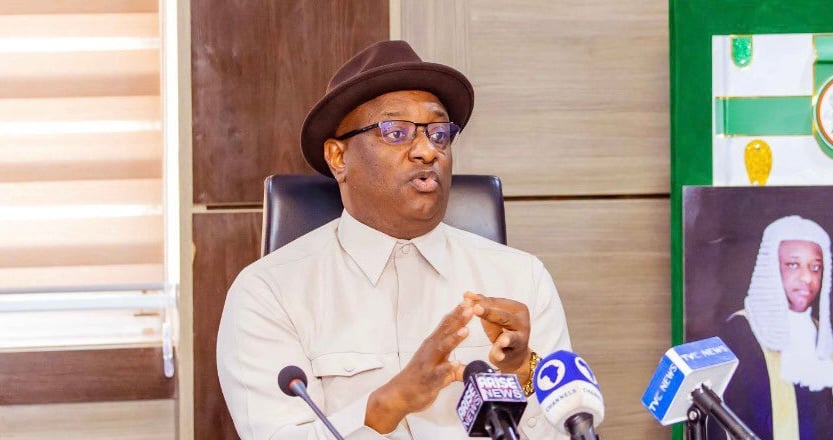Mohammed Bello, RMFAC chairman
In a stunning display of “chronic lack of empathy and self-moderation in the business of ingratiation,” the Revenue Mobilisation, Allocation, and Fiscal Commission (RMAFC) has chosen this moment of “unprecedented economic hardship” in the history of Nigeria as a nation to propose a salary increase for Nigeria’s political officeholders. The commission chairman, Mohammed Bello Shehu, argues that paying the President ₦1.5 million monthly and ministers less than ₦1 million is inadequate for their responsibilities. What he conveniently fails to mention is that these figures represent merely the “tip of the compensation iceberg,” while the average civil servant struggles to survive on the new minimum wage of ₦70,000 monthly in the face of the galloping inflation in the land.
The proposed increase comes at a time when “inflation continues to batter” ordinary Nigerians, with the rate standing at 21.88% as of July 2025. Meanwhile, political officeholders enjoy allowances that dwarf their already generous official salaries. According to reports, when allowances for housing, transportation, utilities, domestic staff, and other benefits are factored in, the President’s total compensation package can exceed “₦100 million annually.” This shocking disparity reveals the profound disconnect between the political class and the citizens they are supposed to serve.
The Allowance Economy: How Much Politicians Really Earn
Beyond the official salary figures lies a “shadow compensation system” that would make corporate executives blush:
Advertisement
– Housing allowances, covering luxurious accommodations.
– Vehicle maintenance and fuel allowances sustaining fleets of official cars.
– Domestic staff allowances funding teams of personal assistants.
Advertisement
– Entertainment allowances for hosting lavish events.
– Constituency allowances, often used as discretionary funds.
– Travel allowances including $900 per night estacode for ministers.
These benefits exist alongside comprehensive healthcare coverage, security details, and other perks that shield politicians from the economic realities that ordinary Nigerians have to contend with, daily. While a civil servant earning ₦70,000 must budget for transportation, healthcare, housing, and utilities from that meager amount, political officeholders enjoy these necessities as “separate, generously funded allowances” on top of their salaries.
Advertisement
Below are comparisons of compensation between political officeholders and civil servants.
1. President’s salary equals ₦1.5 million, and his estimated total monthly pay package exceeds ₦8.3 million.
2. A Minister earns ₦1 million , with total monthly earnings estimated to be in the region of ₦2-3 million, an equivalent of a civil servant on Grade Level 17. (₦605,000-₦850,000).
A senator’s remains undisclosed and shrouded in secrecy and controversy, but it is estimated to be around ₦2 to 3 million. Compared to GL 17 (₦605,000-₦850,000).
Advertisement
Whereas, an entry-level civil servant goes home with a minimum of ₦70,000 and a maximum of ₦90,000 per month, depending on the establishment. (GL 01.
A university professor on CONUASS earns ₦400,000 per month.
The Cruel Irony: Political Salaries vs National Priorities
Advertisement
The chronic insensitivity of proposing political pay raises becomes even more apparent when we examine Nigeria’s “budgetary priorities.” While pleading insufficient compensation, politicians have allocated ₦100 billion for the National Home Grown School Feeding Programme in the 2025 budget. This program, despite its noble intentions, has been plagued by corruption allegations, with no less than ₦2.67 billion meant for school feeding during the COVID-19 lockdown allegedly found in individual accounts. The same government that claims it cannot adequately pay its ministers presides over a system where ghost schools receive feeding funds, and resources meant for the poor routinely disappear into private pockets.
The RMAFC chairman argues that inadequate salaries push politicians toward corruption , implying that raising official pay would solve this problem. This flawed logic ignores the reality that many political officeholders already earn multiples of their official salaries through various legal and illegal means. The notion that increasing already generous compensation would suddenly eliminate corruption is not only naive but also insulting to the sensibilities of Nigerians who endure daily hardships while watching their leaders indulge in opulence.
Advertisement
The Social Contract Broken: When Leaders Become Rulers
A sane society maintains a reasonable ratio between the compensation of its highest and lowest earners. In Nigeria, this “social contract” has been shattered beyond repair. While lawmakers allegedly pocket up to ₦30 million monthly, the minimum wage stands at ₦70,000—a ratio of nearly 430:1. This grotesque disparity explains why Nigeria has one of the “world’s highest levels” of inequality, with a privileged few enjoying lifestyles comparable to royalty while the majority of the masses struggle for basic sustenance.
Advertisement
The moral bankruptcy of the political elite becomes particularly evident when we examine their response to labor concerns. The Nigeria Labour Congress (NLC) has rightly condemned the proposed salary increases, pointing out that the real issue isn’t official salaries but the “hidden allowances” that already inflate political earnings. Instead of addressing these legitimate concerns, the political establishment continues to prioritize its comfort over national welfare.
The Way Forward: Restoring Dignity to Public Service
1. Transparency First, Compensation Second:
Before any conversation on salary increases, political officeholders must “fully disclose” their complete compensation packages—including all allowances, benefits, and perks. The current system of hiding behind modest official salaries while enjoying lavish benefits through other channels is fundamentally flawed and fraught with dishonesty and undermines public trust.
2. Lead by Example:
Political leaders should experience the public services they oversee before asking for more compensation. Let them use public healthcare facilities, send their children to public schools, and rely on public transportation. This firsthand experience might foster the culture of empathy and understanding that is currently lacking in governance.
3. Implement Ratio Limits:
Nigeria should establish a “reasonable maximum ratio” between the highest and lowest paid public officials. This would ensure that while political officeholders are adequately compensated, their earnings remain connected to the economic reality of the citizens they claim or purport to serve.
4. Prioritize National Development Over Personal Enrichment:
The government’s focus should be on addressing the structural issues that keep Nigerians poor—improving agriculture, creating jobs, stabilizing the power supply, and enhancing security. As Vice President Shettima noted, the government’s role should be to “derisk, catalyze, and convene” private sector growth, not to create an “insulated political class” divorced from national realities.
5. Strengthen Anti-Corruption Measures:
Rather than increasing salaries to discourage corruption, the government should strengthen enforcement mechanisms to detect and punish corruption. The notion that higher pay automatically eliminates corruption by the ruling class is unsupported by evidence, history, and even common sense. After all, what they’ve always wanted is “more of everything (legitimate or otherwise). What should matter is the certainty of consequences for misappropriation of public funds.
A Final Word: Service, Not Entitlement
Public office-holding should be about service, not entitlement; about sacrifice, not enrichment. The current proposal to increase political salaries amid widespread poverty demonstrates how far Nigeria’s leadership has strayed from these principles. True leadership means feeling the pain of those you lead (empathy) and prioritizing their needs above your comfort.
Consider this: the president, governors, ministers, and their families are not paying out-of-pocket for food, accommodation, healthcare, transport, or even electricity. From the lavish spreads at the Presidential Villa to the sprawling buffets at Government Houses across the States, taxpayers are literally picking up the bills for the ruling class’ appetite for opulence. Yet, these same leaders see no contradiction, or feel no compunction, in calling for salary hikes while civil servants and pensioners beg to be paid what is due to them.
Nigeria’s political elite must be told, bluntly, that this trajectory is not sustainable. Leaders who cannot moderate their tastes in the face of national hunger are courting social resentment. A country where the governors’ convoys guzzle fuel for free while ordinary people trek because of unaffordable transport fares is not only unjust but also potentially explosive.
If anything deserves a review, it is not the salaries of politicians but their excesses. And the trajectory of the review must be downward, and not upward. Nigeria needs laws that regulate political luxury: cut down on the multitude of aides, the frivolous foreign trips, the multiple SUVs, and the banquet budgets. It is time to redirect resources to areas that touch ordinary lives—education, healthcare, infrastructure, and, crucially, a living wage for workers who keep the system running.
As ordinary Nigerians struggle to feed their families on meager wages, the political class must ask itself: do we really need more money, or do we need more conscience, compassion, and connection to the people we serve? The answer to this question will determine not just the fate of this salary proposal, but the very future of our nation. The measure of a society is found in how it treats its most vulnerable members. By this standard, Nigeria is failing miserably—and our politicians are failing us.
Abubakar writes from Ilorin, Kwara State. He can be reached via 08051388285 or [email protected].
Views expressed by contributors are strictly personal and not of TheCable.

